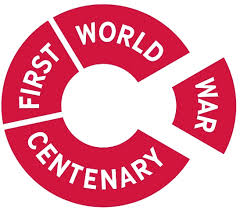
100 years later, the Presidents of Germany and France presided over a ceremony in #Alsace yesterday, marking the beginning of the conflict. Presidents Joachim Gauck and Francios Hollande shook hands, embraced and participated in a military ceremony together. It was also a symbol of the fact that developments in Western Europe in recent decades have made war in that region inconceivable.
The conflict stretched around the World and even touched #Ethiopia, impacting on local politics. It was a major reason for the downfall in 1916 of the unfortunate Lij Iyasu, the Crown Prince of Ethiopia, who was pursuing a pro-German, pro-Turkish policy. This policy was opposed by Dejazmach Teferi Mekonen (later Emperor #Haileselassie) and the emerging class of educated Ethiopians.
During those years, the theatre of war in Africa mainly focused on the four colonies of Germany Togo and Cameroon in West Africa, German East Africa (now Tanzania), and German South West Africa (now Namibia). British and Allied action focused upon these four colonies. But it spilled into other areas too.
The Commonwealth War Graves cemetery in #Hargeisa, #Somaliland records the names of 115 casualties from the ‘Indian Army’ and ‘Somaliland Camel Corps’. These casualties were mostly men who died during the sporadic fighting between 1914 and 1920 against Mullah Muhammed ibn Abdulla Hassan (known in some circles as the ‘Mad Mullah’) and his followers at Shimber Berris. The inscription reads “To The Lasting Honour of those Officers and Men of the Indian Army and of the Somaliland Camel Corps who lost their lives in Somaliland during the Great War.”
Ethiopian troops also saw action during WW1 alongside British and Italian allies against “rebels” in 1917, but were not otherwise involved in these developments. Sadly, by #WW2, Italy had become the enemy and #Britain was fighting alongside Ethiopia to expel their troops from the country. But lessons were learned – eventually – and we are now all working together for peace and security in the region against the shared menace of terrorism.
